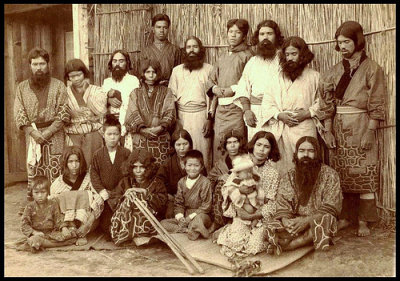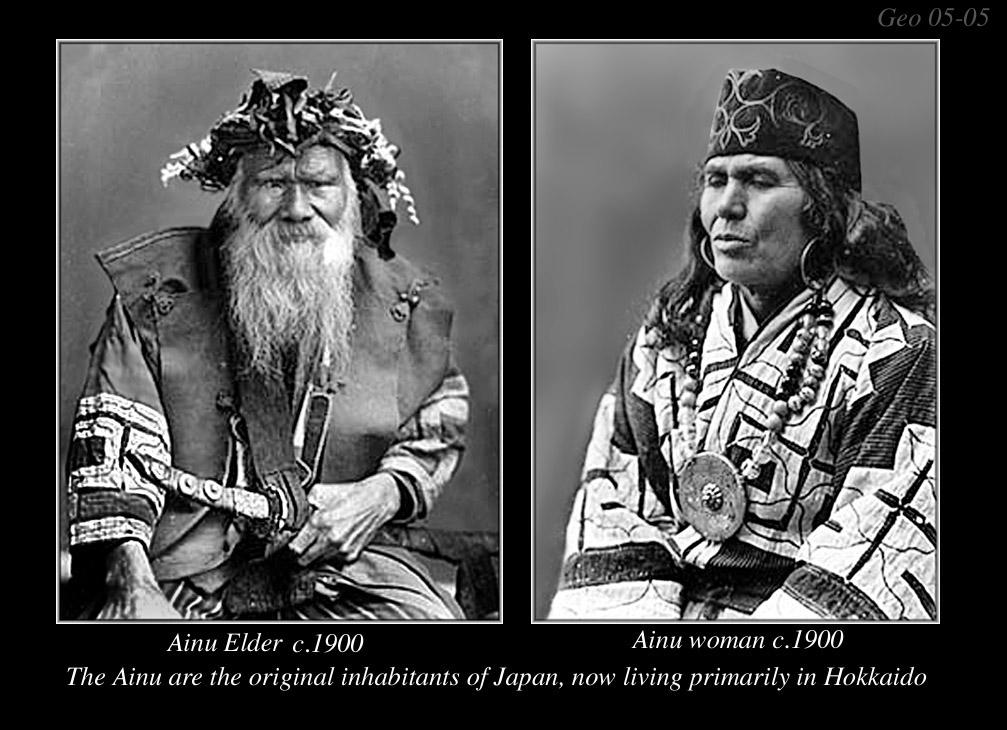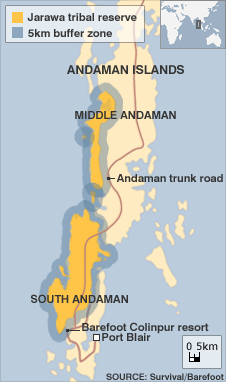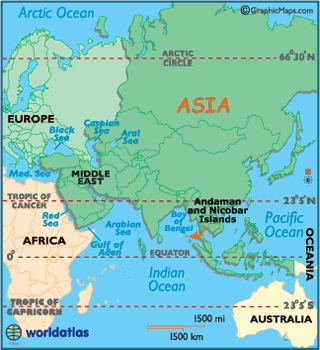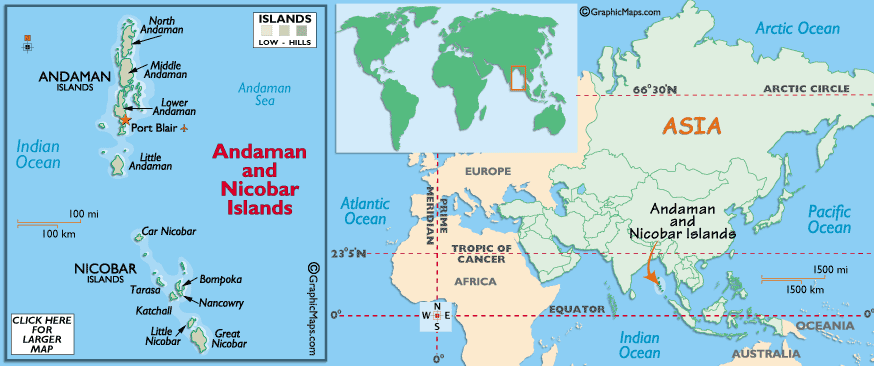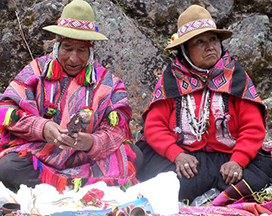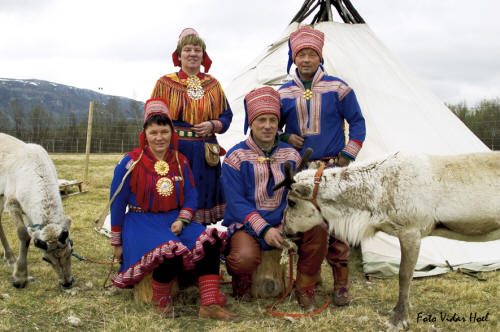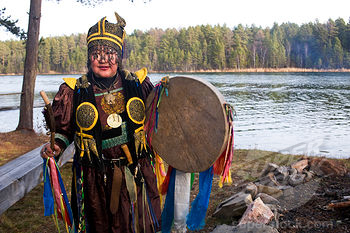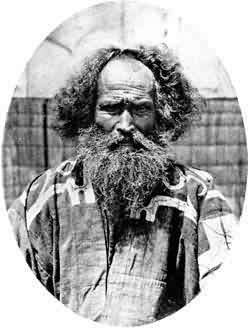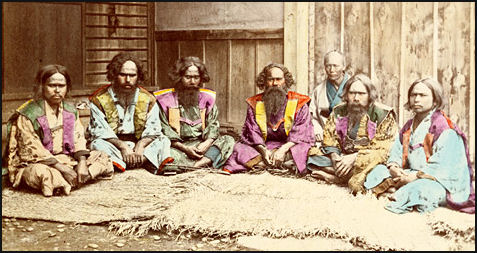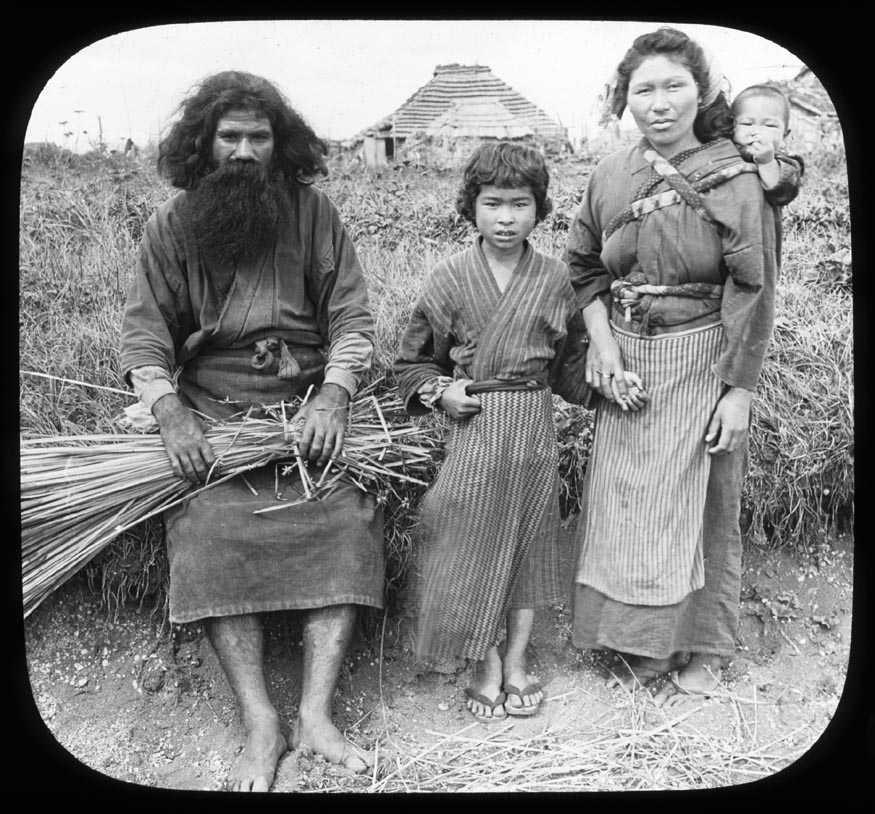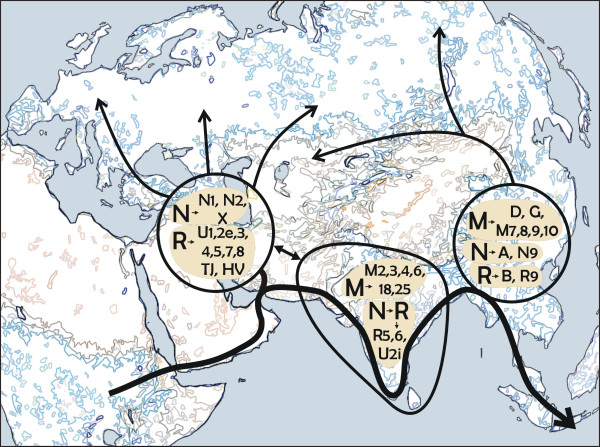- Jan 25, 2009
- 19,765
- 1,428
- Faith
- Oriental Orthodox
- Marital Status
- Private
- Politics
- US-Others
Shalom 
I am currently doing work studying differing aboriginal groups for one of my graduate school classes and I thought it would be beneficial for others to perhaps do discussion (if interested as well on the subject) in sharing what their favorite Indigenous groups are and why? Be it in sharing their customs or their cultures and religious practices, I was wanting to know specifically on which ones stood out to you and why you value them in regards to world religions?
I love studying differing religions/cultures - and for myself, coming at things from a Christian (theistic perspective), it is a big blessing for me being able to see the ways God reflects himself in Indigenous cultures. Concerning some of the ones which I enjoy highly, I would like to take some time and share on a group that is not heard of much but that I am fascinated by....and one of them which I came across was known as the Ainu. They are a hunter-gatherer culture in Japan very much hidden from the world when it comes to noting Indigenous religions and Indigenous people groups since Japan is not a place many would expect to find them....
Now Before going further, in light of others who I've often heard claim that Native Americans automatically are not "Native" because of crossing the Bering Straight, it should be noted that having Indigenous groups in Japan does not prove that theory correct, since I know many Native Americans take offense to that ( more in Bering Strait Theory, Pt. 5: The Theory Comes Crashing Down - ICTMN.com - even though I am not 100% against the concept of migration with Native Americans in all cases). With Native Americans and the Japanese connection, what I will say is that I do think there can be a lot said for strong connections when seeing how similar certain tribes have been to other Asian groups in facial features (especially with those further up North and amongst the Eskimo/Inuit groups who others feel came from Asia originally after crossing over the Bering Strait) There's a reason many have noted thatNative Americans came from Siberia true. And Siberians are Asian...and with the Inuit, I will always respect the culture for the many ways it is multifacted in its travels (and for me, migration in differing ways doesn't automatically mean the Americans were somehow "empty" before others may have visited from elsewhere and I agree with others noting "It is certainly possible that a handful of ancient Siberian people over the course of thousands of years may have found their way into the northern parts of North America").
That said, again, I am careful not to extend links of connection with Asians and Native Americans too far...and it should be noted that having hunter-gatherer cultures in Japan doesn't mean Native Americans are Japanese - for there were hunter-gatherer cultures around the world ....more here in Prehistoric Jomon of Japan and Hunter-Gatherer Lifeways and Growth and decline in complex hunter-gatherer societies: a case study from the Jomon period Sannai Maruyama site, Japan ...or here in the following:
As I've said elsewhere, I think it really tends to ignore the reality of Indigenous struggles whenever trying to claim "All Native Americans are just Asians" (as if they didn't have Tribal names or designations) - and it ignores what the Indigenous of Japan have said in solidarity with Native Americans in the Americas when it comes to the exploitation they have experienced (even as it's seen that the indigenous people of northern Japan have spiritual beliefs, hunting culture and struggle for survival bearing a striking resemblance to that of American Indians (including monotheism and more so monolatry) - just as the struggle of Aboriginals in Austraila with kidnapping their children to train them against Aboriginal culture is similar to what Native Americans went through - and yet they are not assumed to both be the same)...but with Many Native Americans noting connections, I cannot ignore that
But as said before, this is one Indigenous people group whose culture/religion I do wish was covered more rather than hidden. And as another noted on the issue:
If anyone has any thoughts on who they are as a people, I WOULD LOVE to hear. Additionally, if anyone has any other Indigenous groups or Indigenous religions you wish others were made aware of, by all means share in this thread - it is intended to be a collection of Indigenous religions within cultures that are hidden from the dominant groups in their area.
Blessings
I am currently doing work studying differing aboriginal groups for one of my graduate school classes and I thought it would be beneficial for others to perhaps do discussion (if interested as well on the subject) in sharing what their favorite Indigenous groups are and why? Be it in sharing their customs or their cultures and religious practices, I was wanting to know specifically on which ones stood out to you and why you value them in regards to world religions?
I love studying differing religions/cultures - and for myself, coming at things from a Christian (theistic perspective), it is a big blessing for me being able to see the ways God reflects himself in Indigenous cultures. Concerning some of the ones which I enjoy highly, I would like to take some time and share on a group that is not heard of much but that I am fascinated by....and one of them which I came across was known as the Ainu. They are a hunter-gatherer culture in Japan very much hidden from the world when it comes to noting Indigenous religions and Indigenous people groups since Japan is not a place many would expect to find them....
Now Before going further, in light of others who I've often heard claim that Native Americans automatically are not "Native" because of crossing the Bering Straight, it should be noted that having Indigenous groups in Japan does not prove that theory correct, since I know many Native Americans take offense to that ( more in Bering Strait Theory, Pt. 5: The Theory Comes Crashing Down - ICTMN.com - even though I am not 100% against the concept of migration with Native Americans in all cases). With Native Americans and the Japanese connection, what I will say is that I do think there can be a lot said for strong connections when seeing how similar certain tribes have been to other Asian groups in facial features (especially with those further up North and amongst the Eskimo/Inuit groups who others feel came from Asia originally after crossing over the Bering Strait) There's a reason many have noted thatNative Americans came from Siberia true. And Siberians are Asian...and with the Inuit, I will always respect the culture for the many ways it is multifacted in its travels (and for me, migration in differing ways doesn't automatically mean the Americans were somehow "empty" before others may have visited from elsewhere and I agree with others noting "It is certainly possible that a handful of ancient Siberian people over the course of thousands of years may have found their way into the northern parts of North America").
That said, again, I am careful not to extend links of connection with Asians and Native Americans too far...and it should be noted that having hunter-gatherer cultures in Japan doesn't mean Native Americans are Japanese - for there were hunter-gatherer cultures around the world ....more here in Prehistoric Jomon of Japan and Hunter-Gatherer Lifeways and Growth and decline in complex hunter-gatherer societies: a case study from the Jomon period Sannai Maruyama site, Japan ...or here in the following:
- The Plight of Ainu, Indigenous People of Japan - Journal of Indigenous Social Development
- Ainu History and Culture
- The Ainu and Their Culture: A Critical Twenty-First Century Assessment | The Asia-Pacific Journal
- https://heritageofjapan.wordpress.co...e-ainu-people/
- Who are the Ainu people? - Heritage of Japan
- Japan: Ainu recognized as indigenous people - Global Voices
- Ainu Tattooing | Rekishi Nippon (Japanese history)
- Indigenous at last! Ainu Grassroots Organizing and the Indigenous Peoples Summit in Ainu Mosir | The Asia-Pacific Journal
- Ainu Success: the Political and Cultural Achievements of Japan?s Indigenous Minority??????????????????????????? | The Asia-Pacific Journal
- The Ainu People of Japan - Neatorama
- Toward Ainu- and Japan-Specific Indigenous Policies
- Ainu: The Indigenous People of Japan's Monoethnic Nation ...
As I've said elsewhere, I think it really tends to ignore the reality of Indigenous struggles whenever trying to claim "All Native Americans are just Asians" (as if they didn't have Tribal names or designations) - and it ignores what the Indigenous of Japan have said in solidarity with Native Americans in the Americas when it comes to the exploitation they have experienced (even as it's seen that the indigenous people of northern Japan have spiritual beliefs, hunting culture and struggle for survival bearing a striking resemblance to that of American Indians (including monotheism and more so monolatry) - just as the struggle of Aboriginals in Austraila with kidnapping their children to train them against Aboriginal culture is similar to what Native Americans went through - and yet they are not assumed to both be the same)...but with Many Native Americans noting connections, I cannot ignore that
But as said before, this is one Indigenous people group whose culture/religion I do wish was covered more rather than hidden. And as another noted on the issue:
In Asia, Indigenous religions are especially threatened because of a blanket of denial by the power structure of the existence of first peoples. Cultural Survival points out that across Asia Indigenous Peoples are more commonly referred to as national minorities (China), isolated alien peoples (Indonesia), hill tribes (Thailand)or natives (Borneo). In the Philippines, until recently the term Indigenous Peoples referred specifically to non-Christian tribes. These terms ignore the distinct characteristics and historic struggles of Indigenous groups across Asia such as the Ainu of Japan, Orang Asli of Malaysia, the Lembata and Toraja of Indonesia, Kachin and Kayans of Burma, the Mon-Khmer of Southeast Asia, and the Tai of China.
Indigenous religions are inextricably tied to the land, making eviction and loss of territory even more devastating. As the above-mentioned declaration states, For us, the land and oceans are sacred. Yet, we are being driven out of our lands and oceans in the name of development that does not benefit us, but, rather, causes the destruction of cultures, identities, and life support systems. As Longchair explains, According to the Indigenous Peoples concept, it is the land that creates time and history When the land and surrounding environment are destroyed, the people experience a vacuum; the rhythm of life is seriously jeopardized. The whole universe is perceived as a religious universe. Rocks and boulders, trees and rivers are not just empty objects, but religious objects; the voices and songs of animals speak of a religious language; the eclipse of the sun and of the moon are not simply a silent phenomenon of nature, it speaks to the community that observes it.
Indigenous religions are inextricably tied to the land, making eviction and loss of territory even more devastating. As the above-mentioned declaration states, For us, the land and oceans are sacred. Yet, we are being driven out of our lands and oceans in the name of development that does not benefit us, but, rather, causes the destruction of cultures, identities, and life support systems. As Longchair explains, According to the Indigenous Peoples concept, it is the land that creates time and history When the land and surrounding environment are destroyed, the people experience a vacuum; the rhythm of life is seriously jeopardized. The whole universe is perceived as a religious universe. Rocks and boulders, trees and rivers are not just empty objects, but religious objects; the voices and songs of animals speak of a religious language; the eclipse of the sun and of the moon are not simply a silent phenomenon of nature, it speaks to the community that observes it.
If anyone has any thoughts on who they are as a people, I WOULD LOVE to hear. Additionally, if anyone has any other Indigenous groups or Indigenous religions you wish others were made aware of, by all means share in this thread - it is intended to be a collection of Indigenous religions within cultures that are hidden from the dominant groups in their area.
Blessings
Last edited:


